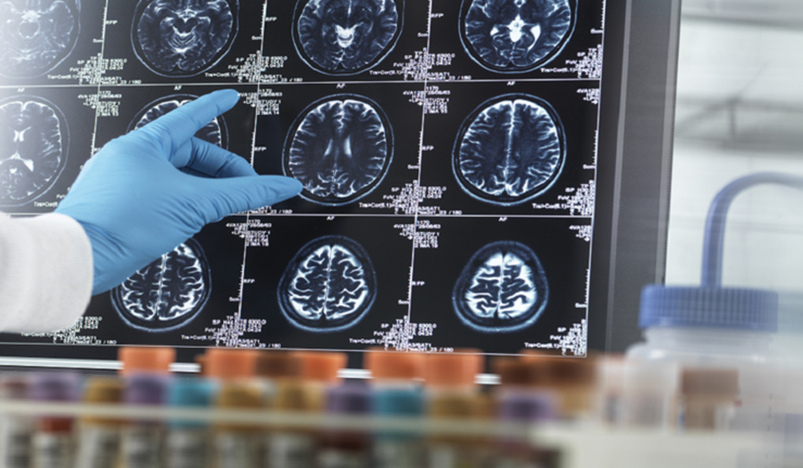
Dementia
Researchers from the Centre of Preventive Neurology have developed a new method for predicting dementia with over 80% accuracy and up to nine years before a diagnosis.
The new method provides a more accurate way to predict dementia than memory tests or measurements of brain shrinkage, two commonly used methods for diagnosing dementia.
The team, led by Professor Charles Marshall and published today in Nature Mental Health, developed the predictive test by analysing functional MRI (fMRI) scans to detect changes in the brains default mode network (DMN).
The DMN connects regions of the brain to perform specific cognitive functions and is the first neural network to be affected by Alzheimers disease.
The researchers used fMRI scans from over 1,100 volunteers from UK Biobank, a large-scale biomedical database and research resource containing genetic and health information from half a million UK participants, to estimate the effective connectivity between ten regions of the brain that constitute the default mode network.
The researchers assigned each patient with a probability of dementia value based on the extent to which their effective connectivity pattern conforms to a pattern that indicates dementia or a control-like pattern.
They compared these predictions to the medical data of each patient, on record with the UK Biobank.
The findings showed that the model had accurately predicted onset of dementia up to nine years before an official diagnosis was made, and with greater than 80% accuracy.
In the cases where the volunteers had gone on to develop dementia, it was also found that the model could predict within a two-year margin of error exactly how long it would take that diagnosis to be made.
The researchers also examined whether changes to the DMN might be caused by known risk factors for dementia.
Their analysis showed that genetic risk for Alzheimer's disease was strongly associated with connectivity changes in the DMN, supporting the idea that these changes are specific to Alzheimer's disease.
They also found that social isolation was likely to increase risk of dementia through its effect on connectivity in the DMN.
Charles Marshall, Professor and Honorary Consultant Neurologist, led the research team within the Centre for Preventive Neurology at the Wolfson Institute of Population Health. He said: "Predicting who is going to get dementia in the future will be vital for developing treatments that can prevent the irreversible loss of brain cells that causes the symptoms of dementia.
(QNA)
.jpg)
Qatar Secures Place Among the World's Top 10 Wealthiest Nations
.jpg)
Hamad International Airport Witnesses Record Increase in Passenger Traffic

Saudi Arabia: Any visa holder can now perform Umrah

What are Qatar's Labour Laws on Annual Leave?
Leave a comment